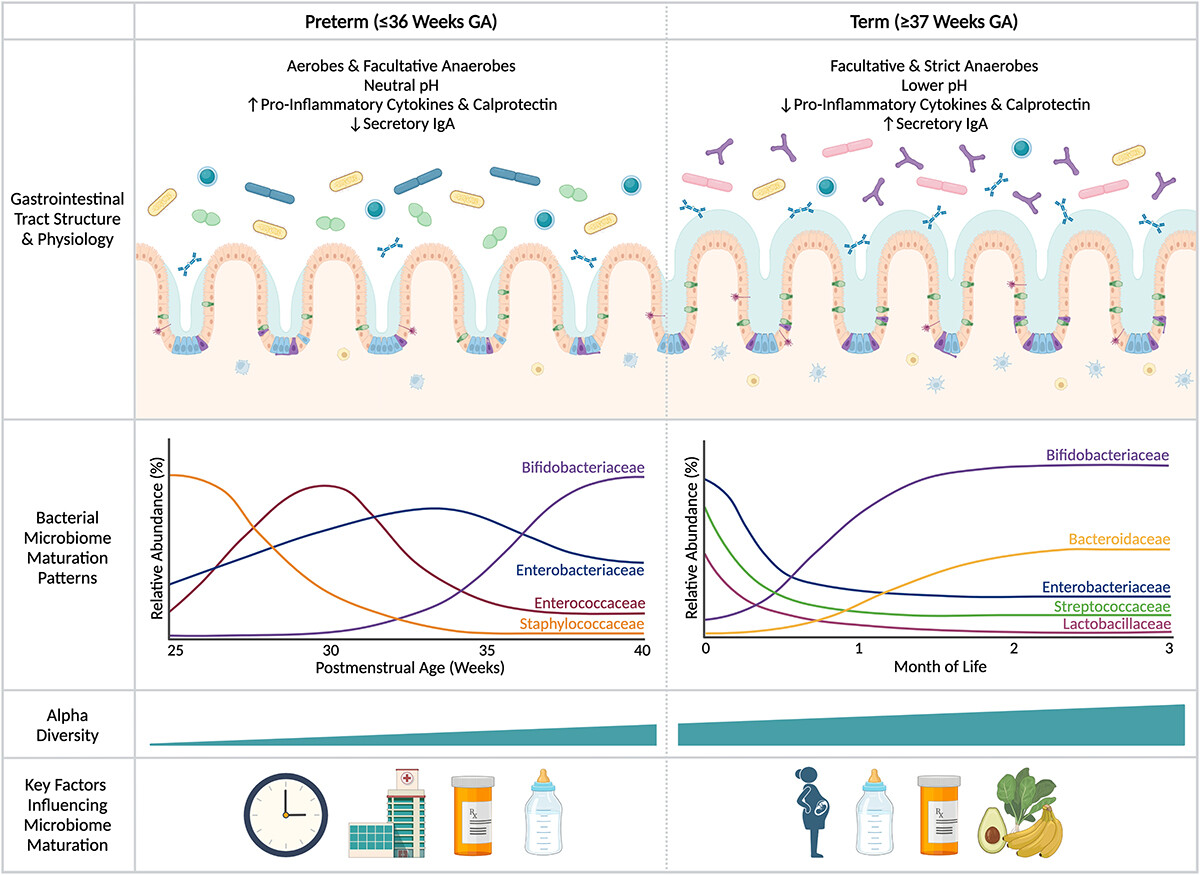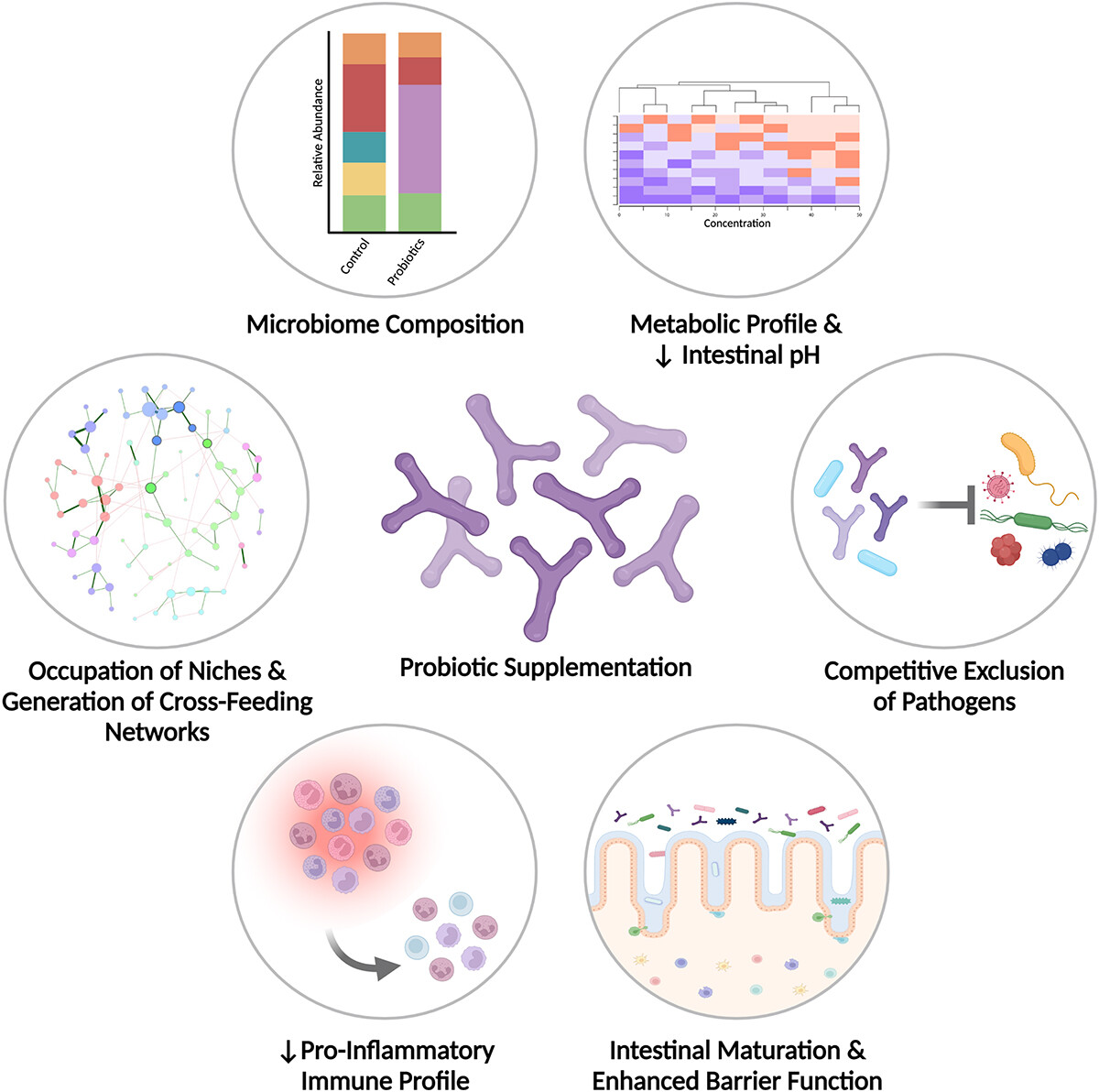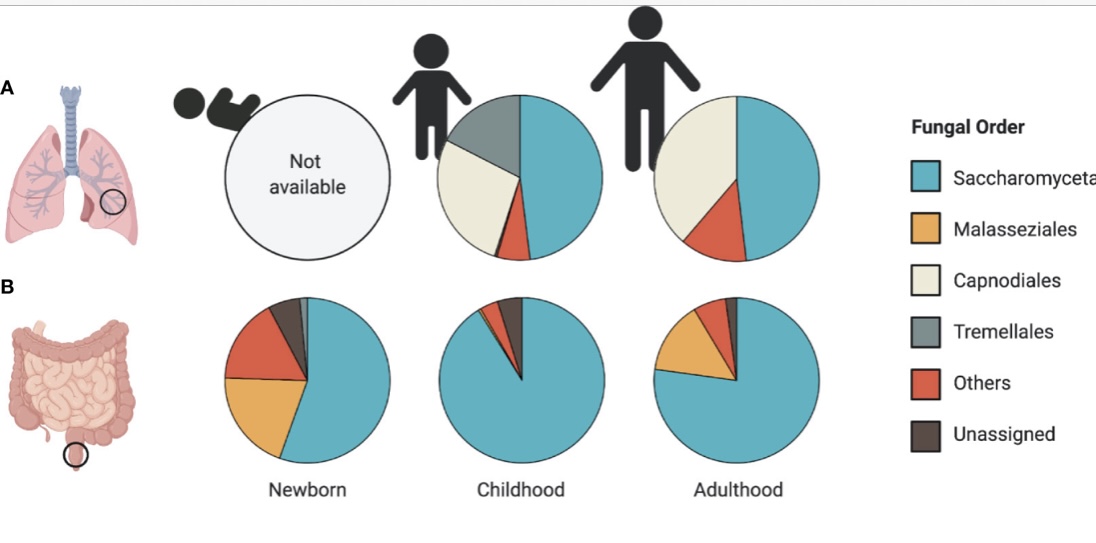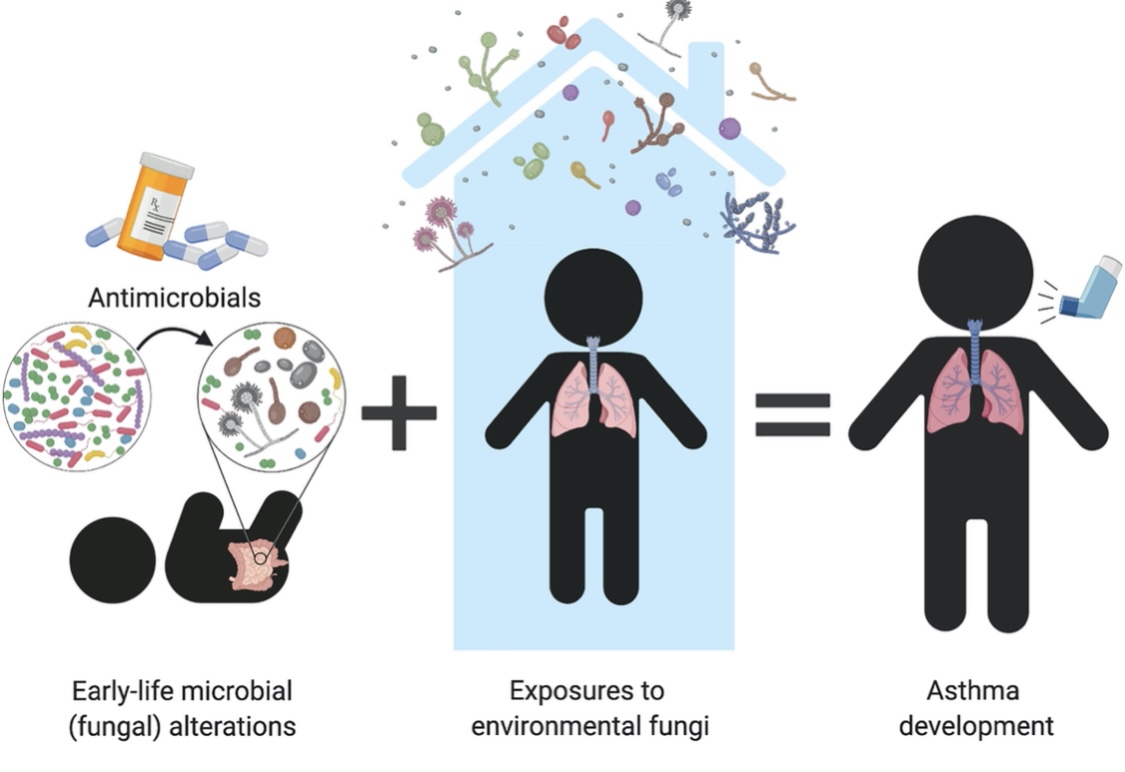Can probiotics improve the microbiome of premature infants and should they be used? @EmilyMercer and I reviewed ecological, physiological, clinical and safety considerations to answer this important question @tandfonline
shorturl.at/bdxD3 1/n
shorturl.at/bdxD3 1/n
Being born preterm alters the gut microbiome compared to babies born at term, especially those born really early. Main features are low a-diversity, low bifidobacteria and high pathobionts. 

Probiotics lower the risk of NEC and neonatal sepsis. Through this, we have learned that probiotics given to premmies also accelerate the transition to a term-like microbiome.
https://twitter.com/ArrietaLab/status/1524415340192567296?s=20
Lessons emerge from dozens of studies pointing to bifidobacterial strains as superior options because they:
1. engraft the premmie gut microbiome
2. ⬆️HMO metabolism, leading to ⬆️ SCFA
3. exclude pathogens
4. ⬇️ inflammation
5. sustain growth of other microbes
1. engraft the premmie gut microbiome
2. ⬆️HMO metabolism, leading to ⬆️ SCFA
3. exclude pathogens
4. ⬇️ inflammation
5. sustain growth of other microbes

Probiotics can benefit the health and microbiome of premmies, BUT important concerns remain because:
🚨 Rigorously designed RCTs evaluating when, how often, how long, to give probiotics are largely non-existent (probiotics are not drugs... yet).
AND
🚨 Rigorously designed RCTs evaluating when, how often, how long, to give probiotics are largely non-existent (probiotics are not drugs... yet).
AND
🚨 Severe adverse effects are very rare but until industry can ensure consistent quality control and standard microbial amounts within the products, safety concerns will remain.
Premmies 👶 could reap the most benefits from early shifts in microbiome maturation through probiotics, but alignment of rigourous studies and products is needed before they can be fully recommended.
Do you think probiotics should be given to premature infants?
Do you think probiotics should be given to premature infants?
• • •
Missing some Tweet in this thread? You can try to
force a refresh

 Read on Twitter
Read on Twitter





